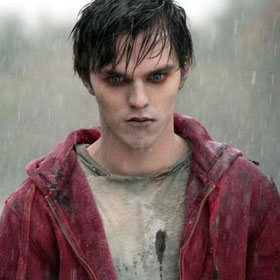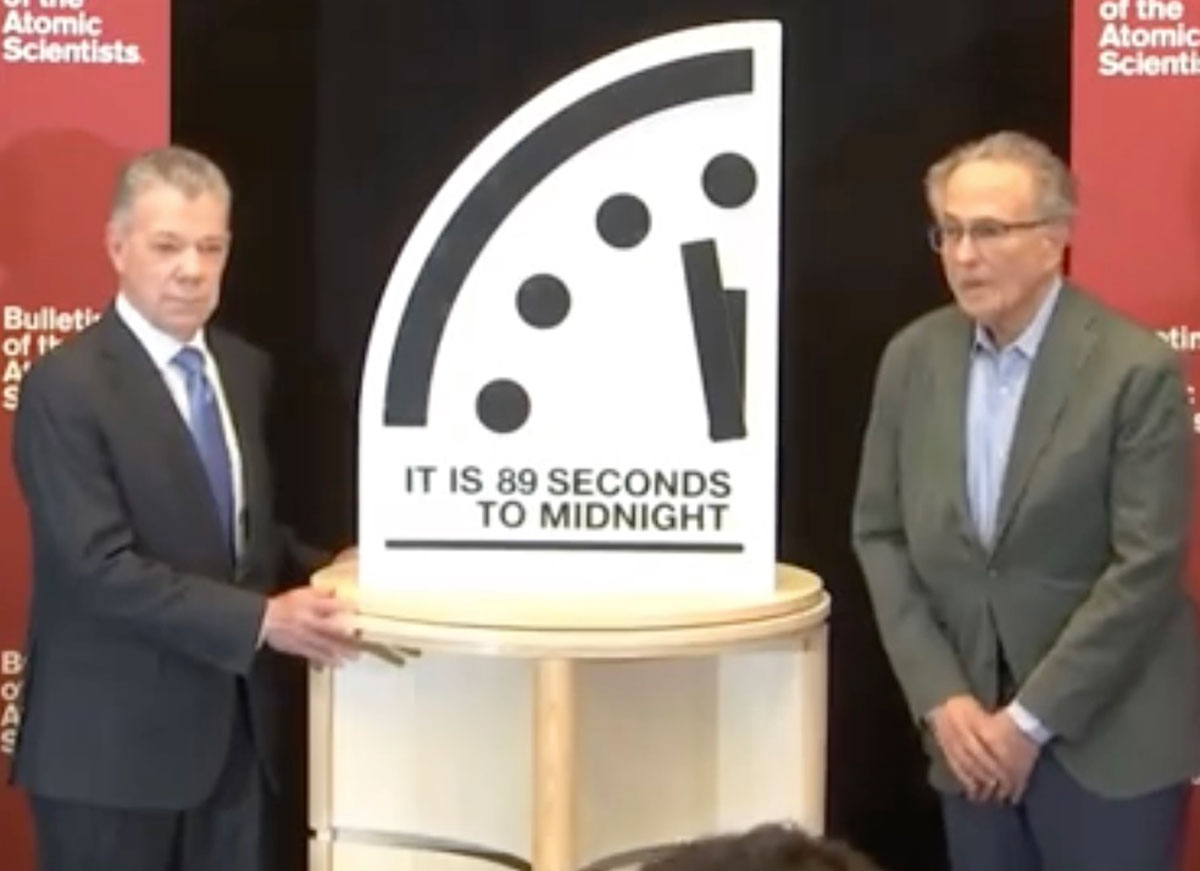‘Warm Bodies’ Movie Review: ‘Warm Bodies’ Proves Love Is As Contagious As A Zombie Virus

3.5/5
With the success of AMC’s wildly popular series The Walking Dead and a slew of zombie-related flicks including Zombieland, Shaun of the Dead, 28 Days Later, and the upcoming World War Z, I admit I did not have very high expectations for Warm Bodies. The zombie craze has been a staple in television, film and video games for the past few years, so much so that it begs the question: how much more undead life can there be in an already saturated genre?
I entered the theater with preconceived notions that Warm Bodies, based on Isaac Marion’s novel of the same name, was the zombie version of 2008’s Twilight, another paranormal romance rife with awkward, laughable performances and enough campiness to keep me sort of interested. I’d read the book’s premise a few months back and giggled over its apparent absurdity: a zombie falls in love with a human girl after eating her boyfriend’s brain – that’s all I needed to return the book to the shelf and move on. Yet my curiosity piqued at the movie’s release, and needless to say, after watching, I left with a strange mix of satisfaction and optimism.
Warm Bodies is so refreshing because it offers zombies, who are typically depicted as mindless eating machines, a voice. The oldies-fueled rom-com follows R, played by Nicholas Hoult, an extremely clever 20-something-year-old zombie whose cognitive abilities are still intact. Hoult, who got his big break back in 2002’s About A Boy, brings such a vibrant and honest sweetness to lifeless R, especially when he interacts with his love interest Julie (Teresa Palmer); he is by far the most compelling and endearing character to watch. Palmer appears as a more expressive Kristen Stewart, but her character’s history, apart from the appearance of her father, played by John Malkovich, the humans’ leader, is vague and lends to her static nature.
When we first meet him, R is in the midst of an existential crisis. He laments his slouchy, pale demeanor and his inability to connect with anyone as he wanders through a post-apocalyptic airport. His unofficial home is an airplane abandoned on the runway, which he has filled with an extensive collection of vinyl records and other bits and bobs – these are his ties to what it’s like to be human. The set very much resembles Wall-E’s trailer in Wall-E or Ariel’s grotto in The Little Mermaid. I half-expected R’s record player to play “Part of Your World.”
The airport is shared by zombies and Boneys, skeletal CGI zombies devoid of any humanity and who lurk in the shadows. R can’t remember much about his old life, especially the cause of the zombie outbreak, but he judges by his hoodie that he was unemployed when he was alive. A young, jobless, socially-stunted member of the undead? It certainly echoes the woes of many a young American in today’s economy.
R grunts and exchanges self-proclaimed creepy stares with his zombie friend named M, played by comedian Rob Corddry. They stagger along with others to the City in search of food and raid a group of human survivors collecting medical supplies. In the ensuing carnage, time slows as R notices one of the survivors, a blonde girl viciously gunning down zombies. He gets up and approaches, but not before attacking her boyfriend and bashing his head in to get to his brain. Eating brains helps R feel human, as the victim’s memories are transferred to him. R sees through Perry’s (Dave Franco, James’ younger brother) eyes in a series of sunny, carefree memories which look like they belong in an American Eagle Outfitters ad. The blonde girl’s name is Julie, and R is immediately hooked. When he returns to reality, Julie is out of ammo and terrified. R panics – he comically asks himself, “Why do I have to be so weird?” – as he rushes to her defense. So begins R and Julie’s tentative bonding, which will eventually spark a decidedly human development in R. That is what forms the real conflict, and the film’s pace picks up considerably from there. Alliances are formed, lines are crossed, biases are amended. It’s not a difficult storyline to follow – you might already have a pretty good idea of how it ends, and odds are, you’re probably right – but I won’t spoil the rest for you.
Despite some glaring continuity issues involving chases with zombies and Boneys, the ending’s predictability, and cringe-worthy clichés that are bound to pop up in such a date flick, Warm Bodies is a fun, light and well-paced Romeo and Juliet-esque love story and analysis of the human condition. R struggles to combat the physical obstacles of his condition to become a part of humanity, and his internal dialogue is testament to the lack of face-to-face communication we endure in today’s world. In a society dominated by technology, it’s dangerously simple to slip into a zombie-like state. Warm Bodies succeeds in exhuming and reminding us of that regression so many would like to ignore.
For more like this ‘Warm Bodies’ movie review, check out Uinterview’s movie review section here.
RELATED ARTICLES
Get the most-revealing celebrity conversations with the uInterview podcast!





Leave a comment